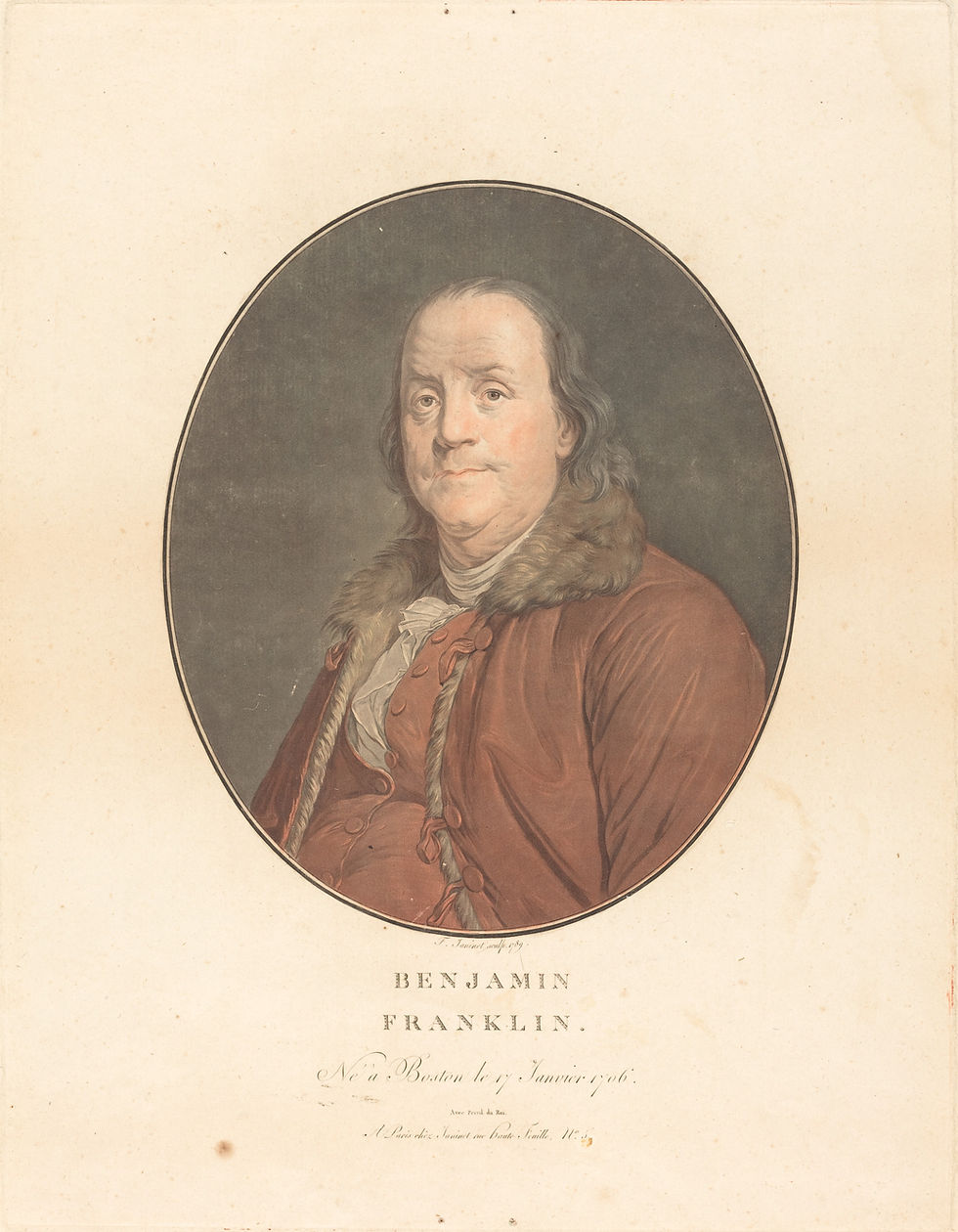Voltaire
- Haley Jensen
- Feb 23, 2021
- 3 min read
Updated: Apr 28, 2021
*WARNING* This page includes harmful racist stereotypes and racist slurs from the 18th century. These words were offensive and wrong at the time and still are. I have included them in this web page to depict the racism Wheatley endured as a black poet. This website's aim is to be inspiring and show the success of Wheatley, but it is impossible to tell her story, and the story of other black authors in the 18th century, and neglect the severe racism and discrediting of her work due to racist ideas.
François-Marie Aroue also known as Voltaire (1694-1778) is one of the most influential figures of the enlightenment.
He was a philosopher, writer, and historian. He was a staunch deist and wrote against the Catholic Church and corrupt monarchy.
Voltaire's writing and ideas were important and inspiring to the French Revolution radicals and revolutionaries. He was honoured by Napoleon and the radicals after his death.
Within modern France and America he is an important figure in history because of his writings promoting freedom and democracy.
Voltaire cruelly compares African people's intelligence to that of children in an essay promoting atheism. This is clearly racist and an attempt to distance Africans from being associated with atheism. The passage is quoted below but does include very racist language and harmful stereotypes.
"The Caffres, the Hottentots, the Topinambous, and many other small nations, have no God: they neither deny nor affirm; they have never heard speak of Him; tell them that there is a God: they will believe it easily; tell them that everything happens through the nature of things; they will believe you equally. To claim that they are atheists is to make the same imputation as if one said they are anti-Cartesian; they are neither for nor against Descartes. They are real children; a child is neither atheist nor deist, he is nothing".
In Candide he tells of the horrors of slavery due to European's greed and presents a more sympathetic view towards enslaved people.
His actions do not match his words, as Voltaire had invested directly into the slave trade and profited from this.
The legacy of Voltaire's views on race is particularly relevant his statue in Paris has red paint thrown on it to represent the blood of slaves.
Letter from Voltaire to David Louis Constant de Rebecque, Lord of Hermenches, April 11, 1774
"Fontenelle was wrong to say that there would never of poets among the Negroes. There is currently a Negress which is of very good to English . The Empress of Russia, who is the antipode of the Negresses, writes in prose as well as her Chambelan in verse ; & both also amaze me".
The enlightenment figures we associate most with freedom and natural rights were very quick to justify racism and slavery because they believed black people were incapable of producing literature and thinking for themselves.
David Hume, the Scottish enlightenment philosopher believed black people were a different species of humans, incapable of producing literary works.
Hume was challenged on this belief by abolitionist Benjamin Rush (1745-1813) by bringing up Francis Williams (1702-1770), a black poet. Hume responds stating
"In Jamaica, indeed, they talk of one negro, as a man of parts and learning; but it is likely he is admired for very slender accomplishments, like a parrot, who speaks a few words plainy".
John Locke the great champion of freedom and personal liberty had invested 600 pounds into the Royal African Company, which was responsible for transporting most enslaved people from Africa to the Americas.
Wheatley challenged this notion, demanding black people be recognized as human.
This letter is accessible via Electronic Enlightenment an online subscription service that publishes thousands of letters from enlightenment thinkers across the world. Here is the link for the letter https://doi.org/10.13051/ee:doc/voltfrVF1240382a1c
Hanover College has translated and published Voltaire's Atheism II, click below to read more.
For more on recent events related to Voltaire and race click here:
The quote from David Hume comes from a footnote in an essay "Of National Character" in his Essays and Treatises on Several Subjects. This is from page 91 of Vincent Caretta's novel 'Phillis Wheatley: Biography of a Genius in Bondage'. This book is published by the University of Georgia Press and was published in 2014.



Comments